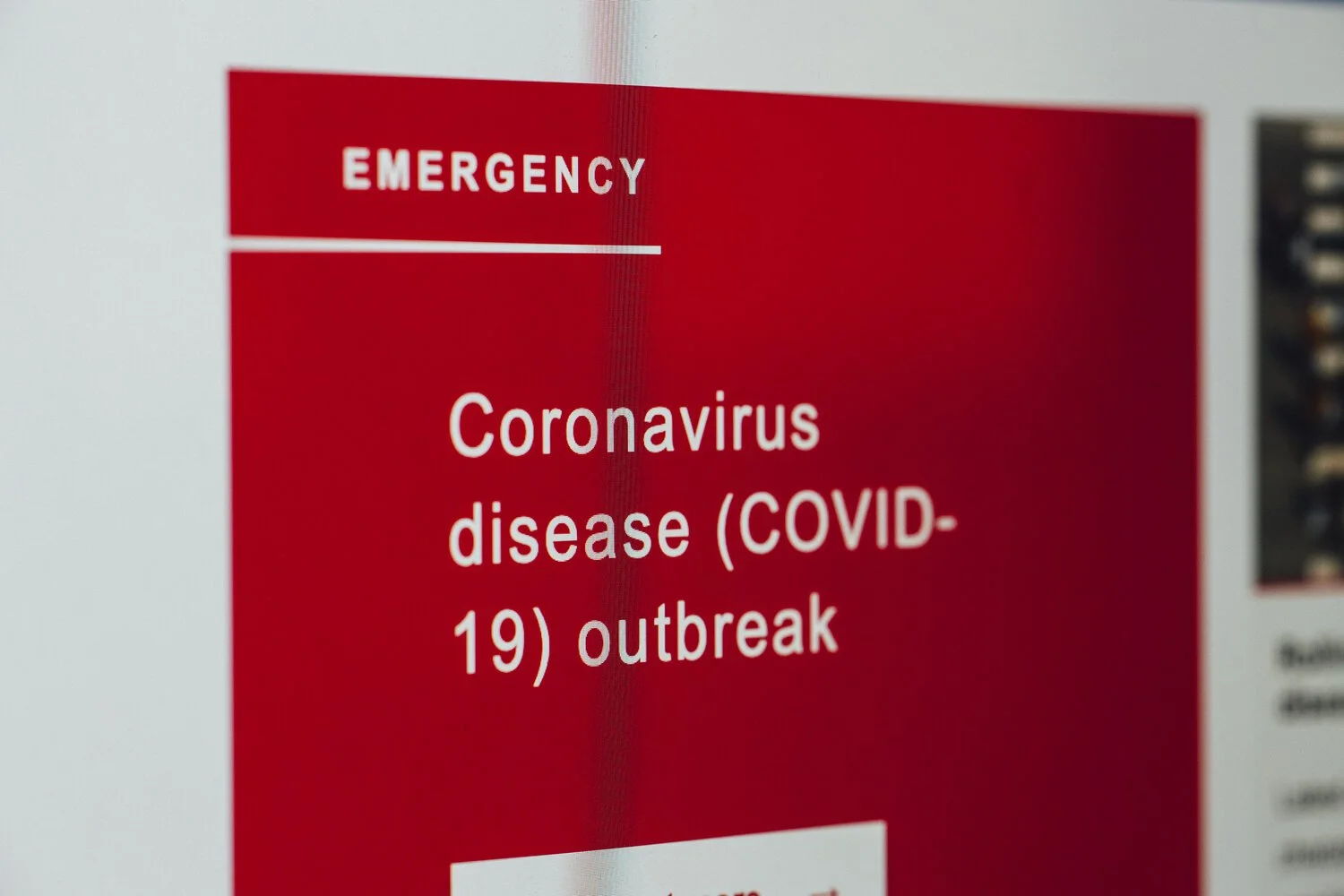Coparenting During COVID-19 Outbreak
Schools and other places of business are shutting down let and right and that means that there could be potential coparenting disruptions for your family. These disruptions could affect childcare, job attendance, and/or visitation schedules. Before there the panic sets in let’s dig into what the coronavirus is and what you can do to minimize or ease the affect of its impact on your coparenting situation.
FIRST, WHAT IS CORONAVIRUS (COVID-19)?
The Center for Disease Control (CDC) defines the coronavirus as a respiratory illness that can spread from person to person. The virus that causes COVID-19 is a new coronavirus that was first identified during an investigation into an outbreak in Wuhan, China. The virus can grow easily in people’s noses and throats and may be transmitted before people are aware they are sick.
Yale Medicine states that while many people globally have built up immunity to seasonal flu strains, COVID-19 is a new virus to which no one has immunity. This speaks to why there is a wait or timetable for a vaccine there has to be testing and clinical trials what can be over a year or more to produce. The quarantine or community isolation has been implemented by many states in order to slow down the transmission of this highly infectious virus because there is no vaccine at this time.
“In every crisis, doubt or confusion, take the higher path - the path of compassion, courage, understanding and love.”
― Amit Ray, Nonviolence: The Transforming Power
SYMPTOMS
COVID-19 may present with slower onset of illness, mild headache and body ache and mild/absent fever. Symptoms may appear 2-14 days after exposure. Yale New Haven Health
CDC Reports COVID-19 illness ranges from mild symptoms to severe illness and death for confirmed coronavirus disease cases.
The following symptoms may appear 2-14 days after exposure.
Fever
Cough
Shortness of breath
If you develop emergency warning signs for COVID-19 get medical attention immediately. Emergency warning signs include*:
Difficulty breathing or shortness of breath
Persistent pain or pressure in the chest
New confusion or inability to arouse
Bluish lips or face
*This list is not all inclusive. Please consult your medical provider for any other symptoms that are severe or concerning.
DO THE FIVE: HELP SLOW THE SPREAD (FROM WORLD HEALTH ORGANIZATION)
HANDS Wash them often
ELBOW Cough into it
FACE Don't touch it
FEET Stay more than 3ft apart
FEEL sick? Stay home
Make sure you stay updated with the Coronavirus and do your research. This will limit any panic or anxiety because you will aware of any new developments.
COMMUNICATION DURING CORONAVIRUS OUTBREAK
With the coronavirus shutdown in full swing, it can impact you coparenting situation in a very real way. Many schools are closed and using digital days to maintain academics during the community isolation to slow down the virus. This is no need to panic but we do need to adjust.
It’s important to maintain communication with your coparent to keep them updated with schedule changes and visitation changes that they may not be aware of. Keeping them in the loop will lower stress and anxiety, arguments, and confusion.
Tips to maintain communication:
Make sure to check messages or return calls that coparent makes. They may have important information to give you
Confirm that coparent knows of closures or schools, sporting events, or other extracurricular activities due to the COVID-19 shutdown
Keep coparent updated if you notice symptoms in the child.
Don’t relay messages through the children. Use all modes of communication Text/Calls/Emails
If you need schedule accommodations because of school closures contact your coparent. If they are resistant contact a third party like an attorney, mediator, parent coordinator, or therapist to discuss upcoming needs.
SCHEDULES AND PARENTING TIME
Your parenting time is valuable but with the coronavirus affecting school and daycare closures it could impact drop off and pick up times. Parents may have their travel times impacted and may become ill themselves. It’s important to take that into consideration since the virus is highly contagious. Will the children stay longer with a parent that has been unknowingly exposed? Will you be able to agree on an alternate visitation schedule a parent or child is exposed?
TIPS:
Be flexible (It’s likely that work schedules and visitation schedules will be impacted)
Clearly communicate changes, needs of child or parenting times
Don’t get sucked into a tug of war
Be mindful of parenting time and visitation schedule
Keep the child’s stress level at a minimum
If child can’t access other parent physically because of the coronavirus shutdown make sure that they can communicate with the other parent via phone, text, or video.
Make sure the family calendar is consistently updated
HEALTH AND MEDICAL ISSUES
Many children have various types of illnesses that cause them to have compromised immune systems or are currently sick with the flu or common cold. It is important to make sure the coparent is aware of illnesses or doctor visits By doing this you eliminate viruses that may be on your hands and avoid infection that could occur by then touching your eyes, mouth, and nose.
It is important to keep the most vulnerable healthy. So here are some tips that will help you and your coparent deal with navigating the outbreak while protecting the children:
Don’t Panic it will only cause more stress, fighting, confusion,
Make sure your you and your kids follow the Five recommended steps- 1. wash hands frequently and use sanitizer if you don’t have access to water 2. cover your mouth when coughing and cough into your elbow to slow the transmission of droplets 3. Don’t tough your face especially if you haven’t washed your hands 4. Stay 3ft away from others if you have to go out. 5. If you or your child feels sick keep them at home.
Face masks will not help slow the spread of the virus only the sick should have the masks. If they are sick they should stay home
Clean and disinfect high-touch surfaces daily in household common areas (e.g. tables, hard-backed chairs, doorknobs, light switches, remotes, handles, desks, toilets, sinks) This will help as coparents who are trying to maintain visitation schedules and will lower the spread of germs from house to house.
Make sure the children take their prescriptions correctly and if they have the flu or any other seasonal illness, try to keep the other parent updated on medication changes and doctor visits.
SEEKING PROFESSIONALS
If there are issues with have difficulty navigating the changes that may occur with the Coronavirus you may want to seek legal or professional help to figure out how to successfully accommodate the children’s needs and the possible change in visitation schedules.
If you need to seek an attorney, parent coordinator, mediator, or therapist consider these tips:
To lower transmission of the coronavirus consider contacting the professional via phone, email, or video
To continue therapy sessions make sure that your therapist is equipped to see you virtually and that their virtual tools are HIPAA Compliant.
You may have to consider rescheduling if these professionals don’t have time in their schedule open or don’t have the right tools to see you virtually.
Again be as FLEXIBLE as you can even if your coparent is being difficult. If all else fails with communicating with your coparent just STICK TO THE PARENTING PLAN.
Begin Counseling & Get Help Dealing with your Pandemic Fears
We can all get through this pandemic successfully, if we use common sense, not panic, and be considerate of others. If you feel like this situation has increased your anxiety use these 3 steps to get the help you need.
Coparenting Group support or individual therapy help or you can begin getting the support you need through by following these simple steps:
Reach out today and schedule a free consultation with me.
Begin meeting with me for individual therapy, processing how the outbreak is affecting you, your kids, and your coparenting situation.
Lower your stress and figure out what you can control and how you to be able to coparent with less stress.
0 Likes





